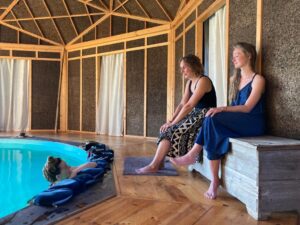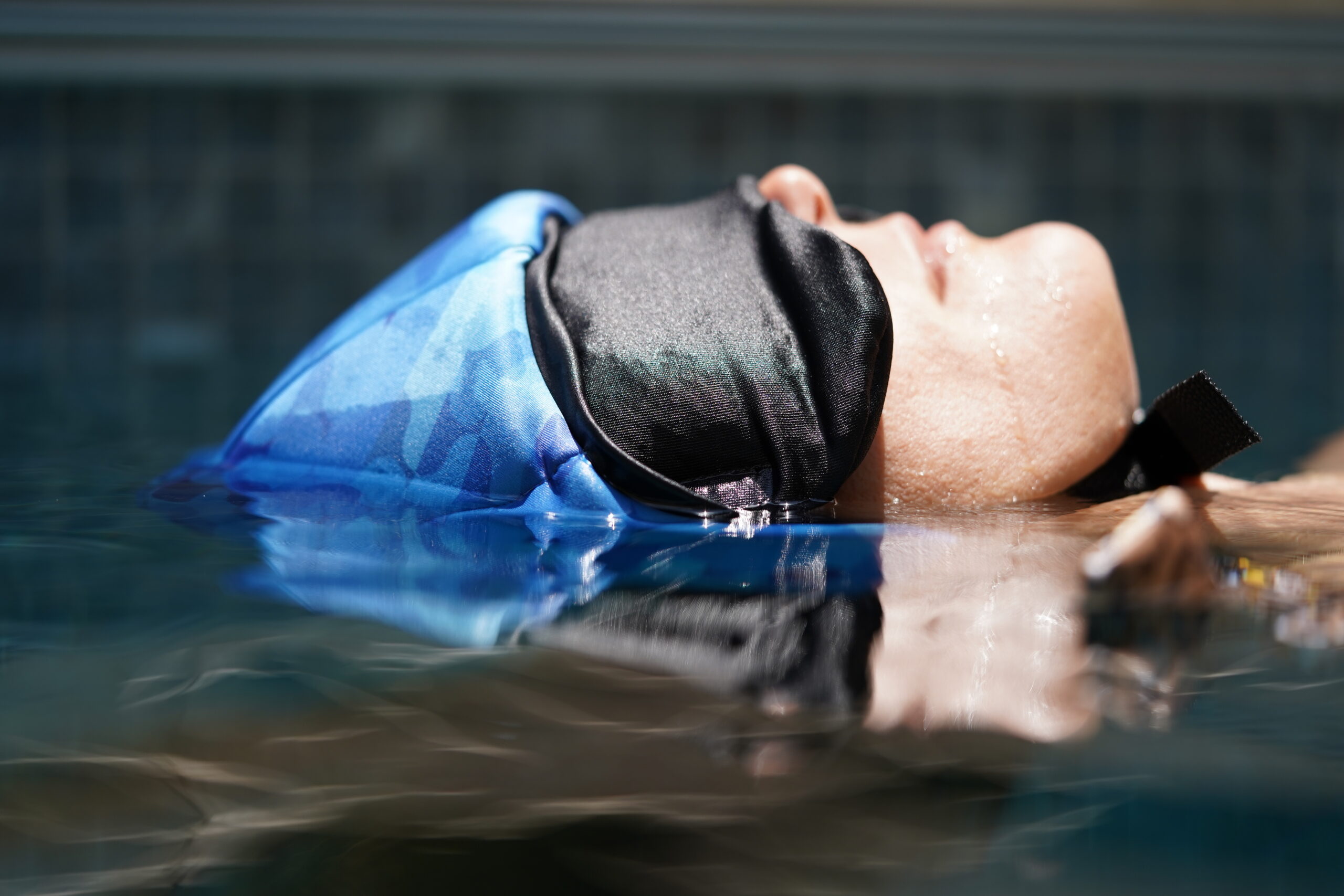O Nosso Blog
Let´s talk?

“The silence inside the bubble is one of the most intense impacts for anyone receiving an aquatic therapy, as it allows you to hear the heart impulses, combined with relaxation of the nervous system and a unique invitation to inhabit a specific and exclusive brain frequency, similar to the one we have waking up from sleep. In this article, we wanted to explore ways in which the receiver can open a window of conversation. This allows us, as facilitators, to invite talking during a hydrotherapy session.”
This is how Ofer Rosenthal, creator of Fly Deeper, begins a text in which he talks about the possibility of leaving an open door to conversation. The somatic experience in water allows “the mind and thoughts to be in a precious ‘vacation’ state”, which is why hydrotherapy is often approached as a moment of silence. However, verbal communication can bring benefits. Ofer points out which ones.
“One of the most common issues: when staying in the water for a long time, the need/urgency to pee arises, for some it will be easier to avoid it, for others it will be difficult to stay the whole session without draining liquids, due to various physical and emotional conditions, many of them related to the session, such as pregnancy, for example. A simple glass of water that was offered before the session or a smoothie that was drunk before coming with a light stomach and not hungry can change the conditions.”
“The urge to pee takes the recipients’ minds back to their bodies and needs, was stuck on the topic of inconvenience for the rest of the session and, for some, can trigger strong memories of shame and guilt; from an early age, when urinating in the bed or in the pants, which is very common in many children or even in adulthood for various reasons.”
“Even as a facilitator, I have experienced many times the need to interrupt a session for a urination break. I had the clock before my eyes to know how long I need to wait and the opportunity to have a break to take care of my needs. Hence this article it is also to remind us facilitators of this fact.”
“When touching on the primordial concept of basic needs, it must be remembered that also the “number 2″ can appear while all the organs are enjoying weightlessness, emotional release and a hydrodynamic massage.”
Pain perception
“Another common reason to invite those receiving a session to feel more comfortable talking is that there will usually be an awakening of important and relevant personal issues that were not addressed during the initial conversation, such as a neck injury or tenderness in certain parts of the body. This forgetfulness can have several reasons – it can happen because it takes some time to gain confidence or simply because people don’t remember these topics, they were well hidden by the subconscious.”
“When we are in a deep, special and moving session, it is almost certain that something will change and that we will no longer be in that “place” where we were. It is essential for the facilitator to be updated, to allow sharing the same page and, above all, to understand. Any session has the potential to heal or overlook these issues.
Not afraid to speak
“To take a broader view of compassion, we must remember that most people are not high-level meditators. Being in total silence for 45 minutes or more can be demanding for some people and intimidating for others. If we know that the doors to a conversation are open, everything can change smoothly and allow authentic and precious expressions to emerge in this encounter, raw and without pretense.”
“Water therapy has the privilege of touching deeply on many of these primordial topics, one after the other – we are able to touch the story behind the stories. As our skills grow beyond basic movements and gestures, we see the bigger picture and lead recipients to disassociate the concepts of “no control” or “helplessness”. Even without knowing what will happen, they are invited to express themselves.”
“A session has the potential to invoke, awaken and deconstruct strong pillars of self-perception created by society, such as intimacy, tolerance, acceptance and trust.”




